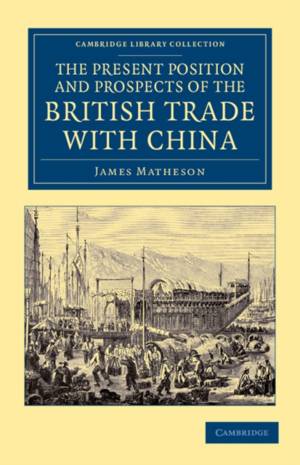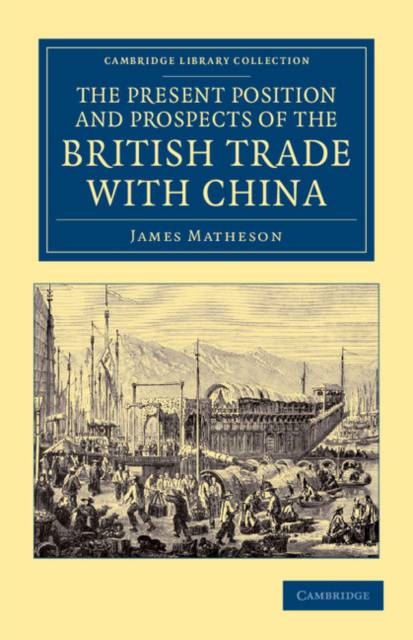
- Afhalen na 1 uur in een winkel met voorraad
- Gratis thuislevering in België vanaf € 30
- Ruim aanbod met 7 miljoen producten
- Afhalen na 1 uur in een winkel met voorraad
- Gratis thuislevering in België vanaf € 30
- Ruim aanbod met 7 miljoen producten
Zoeken
The Present Position and Prospects of the British Trade with China
Together with an Outline of Some Leading Occurrences in Its Past History
James Matheson
€ 54,95
+ 109 punten
Omschrijving
James Matheson (1796-1878) became a leading taipan, with significant influence and power in Hong Kong. When this pamphlet was published, in 1836, he was still trading from Canton (Guangzhou) and, following the abolition of the East India Company's monopoly on trade with China, appealed to the British government to pressure the Chinese to lift the severe restrictions on trading. He suggests that despite the efforts of the merchants, China refuses to acknowledge the law of nations, to trade fairly, and as such has 'long since surrendered her rights and is no longer in a position to enforce them'. Matheson's personal appeal to the Duke of Wellington was rebuffed, but his business partner, William Jardine, later persuaded Lord Palmerston to adopt a tougher approach, which ultimately led to the First Opium War. This is a powerful and provocative text: a defence of both free trade and an aggressive foreign policy.
Specificaties
Betrokkenen
- Auteur(s):
- Uitgeverij:
Inhoud
- Aantal bladzijden:
- 152
- Taal:
- Engels
- Reeks:
Eigenschappen
- Productcode (EAN):
- 9781108045896
- Verschijningsdatum:
- 9/08/2012
- Uitvoering:
- Paperback
- Formaat:
- Trade paperback (VS)
- Afmetingen:
- 140 mm x 216 mm
- Gewicht:
- 199 g

Alleen bij Standaard Boekhandel
+ 109 punten op je klantenkaart van Standaard Boekhandel
Beoordelingen
We publiceren alleen reviews die voldoen aan de voorwaarden voor reviews. Bekijk onze voorwaarden voor reviews.











